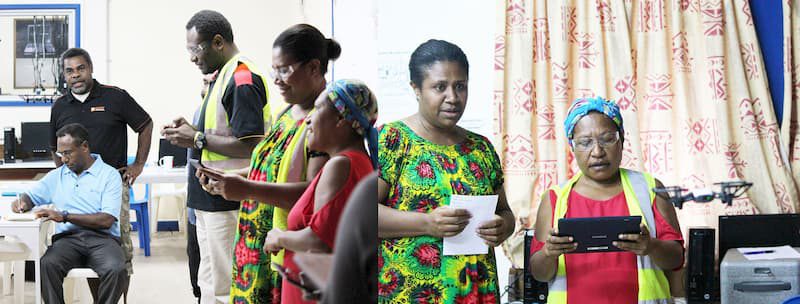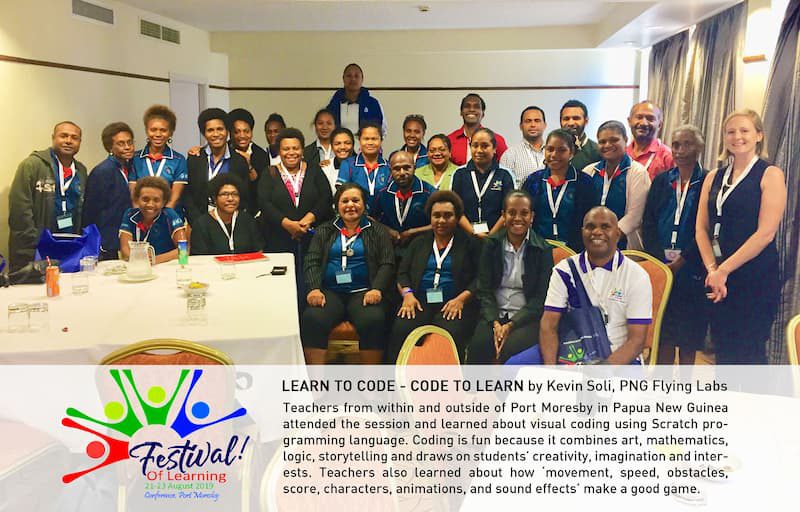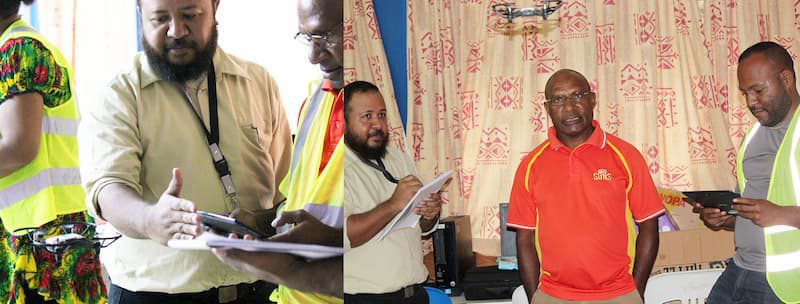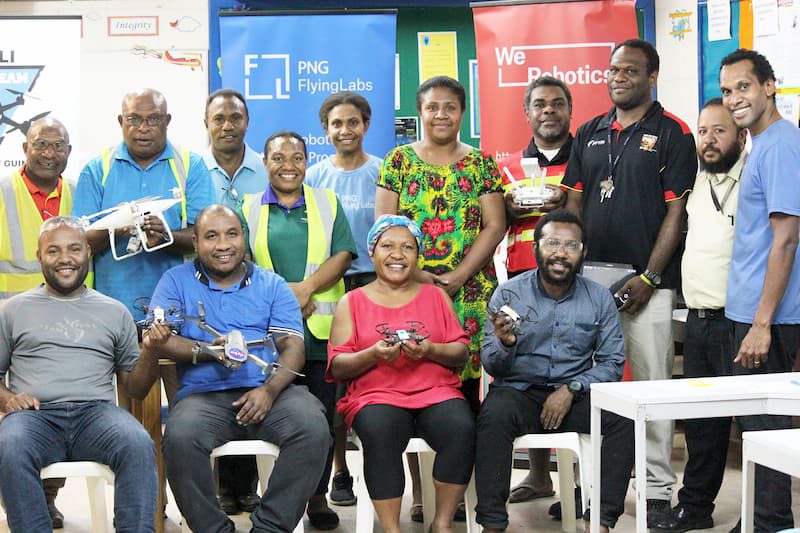
STEAM Training in Papua New Guinea: From Festival of Learning to Teaching with Flying Robots
We want to build an afterschool learning environment that builds local capacity in a fun and meaningful way.
May 27th, 2020
By Kevin Soli, Papua New Guinea Flying Labs
Papua New Guinea Flying Labs has recently expanded our science, technology, engineering, arts, and mathematics (STEAM) program to teachers in Papua New Guinea (PNG). Our afterschool program aims to provide (1) access to local STEAM educators and practitioners, (2) quality hands-on curriculum, and (3) the ability to access affordable, local STEAM training. Currently, in PNG, there is no step-by-step guide for teaching teachers or students (ages 6-16) to fly and program drones safely. We want to build an afterschool learning environment that builds local capacity in a fun and meaningful way using these flying robots!
"Put together a drone training curriculum proposal and submit to the National Department of Education so you can expand your program to students around the country." ~ Teacher, Port Moresby International School

In August 2019, we led a workshop in the inaugural 'Festival of Learning Conference' hosted by Koroboro International School (another IEA school) in PNG, where we spoke to close to 100 teachers. In passing, we met a senior teacher from the Technology Department of Port Moresby International School (POMIS) who expressed interest in our 'coding and droning' program. About six months later, our contact reconnected with us with a proposal for an extra-curricular introductory droning course. Right before a nation-wide COVID-19 lockdown in March 2020, we conducted a one-day 'Coding and Droning Crash Course' for teachers at POMIS during their professional development week.

The crash course's focus was to expose teachers to our drone program that brings the real-world application of drones into their hands and their students to build problem-solving, analytical, and creative skills in a classroom setting. Our training was divided into two parts. The first part was focused on the basics of drone parts and functions, drone movements (up, down, forward, backward, left, right, turning clockwise/counter-clockwise), and drone safety. The teachers were put into teams of three, with each member switching roles between 1) a pilot in command (PIC), 2) an observer (spotter), and 3) a recorder.
The observer assists the PIC with situational awareness while the recorder documents the drone flight. The PICs wore safety vests and safety glasses while manually flying the mini drones at shoulder height within boundaries indicated by safety cones. Working in teams of three enabled the teachers to work collaboratively and to effectively communicate, analyze, and safely launch a drone operation according to their planned mission.

The second part was focused on a quick hands-on with the use of MIT's Scratch programming language or block-based coding. Teachers used Scratch software, which was pre-installed on their laptops for a geometry exercise to make a 'square' shape flight plan. Next, we demonstrated and introduced the teachers on how Scratch can be used as a tool to control mini drones such as DJI Tellos remotely. Teachers instructed the drones with only a few key presses using pre-programmed colored blocks in Scratch. The drones were under their command to fly forward and turn at 90-degree angles to form the square's four corners. This was the outcome of their flight mission—a fun directional game!
We are encouraged to be engaged with POMIS, a private international school in Port Moresby city managed by the International Education Agency (IEA) of PNG. Since our participation in the Festival of Learning Conference, we are pleased to implement one of the major themes from the conference: utilizing digital technology in education with the Scratch programming language, robotics, drones, or 3D-printing.
So why would you be interested in our hands-on coding and droning courses?
"I'm here to learn as much as I can to be an effective facilitator in my students' learning." ~ TEACHING ASSISTANT, IEA PNG.
"I am here to get insights to improve my teaching strategy." ~ MUSIC TEACHER, IEA PNG.
"Just curious about this. How can I make it happen in my classroom." ~ CURRICULUM ADVISOR, PNG.

We have made it happen! Thanks to Ms. Janice Umpa and Mr. Andrew Hriewazi from the Technology Department of POMIS, who had facilitated our hands-on training and had been a great host. And with the WeRobotics global youth technical support, we are proud to expand the magic of drones in PNG and the Pacific.
Category(s)
Location(s)
Recent Articles
View All »

Fixed-Wing, Rotary-Wing, and VTOL Drone Training with Japan Flying Labs
